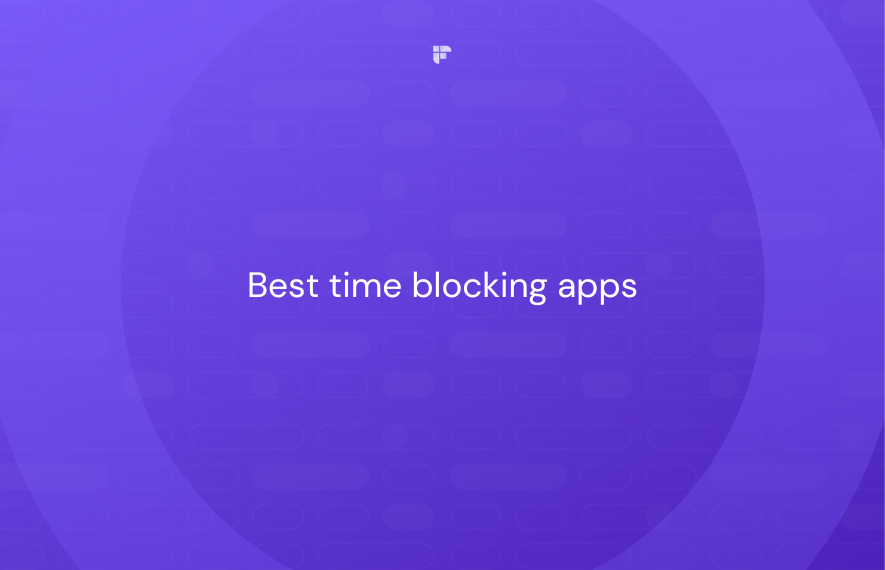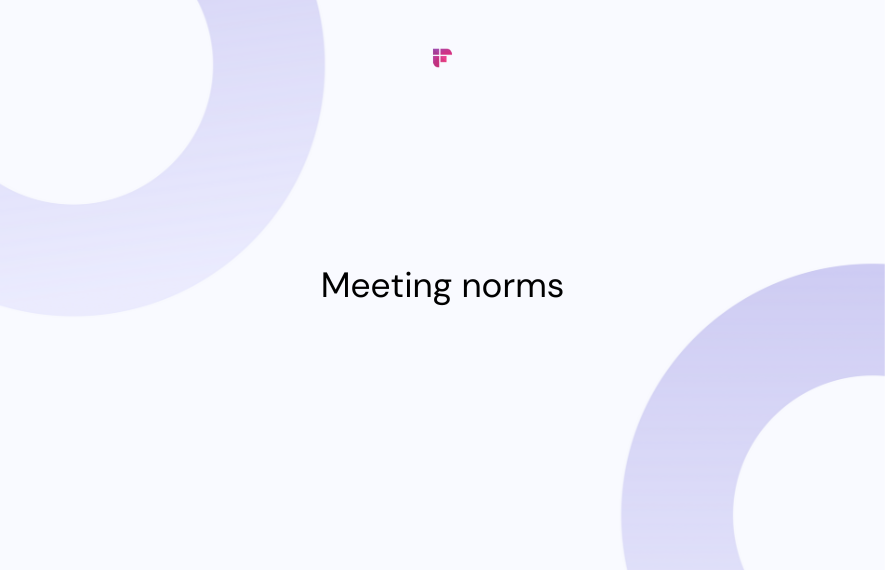We spend almost 31 hours every month in meetings. But despite the many hours, 50% of the time is wasted. This is because no meeting norms are in place to yield productive gatherings!
When leading a meeting, setting norms must be a standard practice. Otherwise, the discussions that take place tend to lose their weight with time. So, whether respecting time limits, setting clear objectives, or encouraging active engagement, adopting a set of rules can transform your team's meeting culture.
Ahead, we unpack 11 standard norms that can turn any meeting into a meaningful and productive interaction. Let's dive in!
Understanding meeting norms

Will you ever go on a vacation without a clear destination in mind? Not really! Having a sense of direction helps you meet your objectives.
In the same way, meeting norms are essential guidelines that shape your discussions. They guarantee fruitful outcomes and ensure your sessions go on smoothly and productively.
These norms contain various aspects of meeting etiquette, including punctuality, active participation, and respectful communication. When everyone in a meeting adheres to these agreed-upon standards, the team can achieve more in less time.
It promotes a positive atmosphere of collaboration and innovation.

11 Norms for meetings every team should follow

Now, let's delve deeper into the core principles that define effective meetings and learn how they can transform your team's interactions.
1. Be clear with your expectations
Today, 71% of employees say their meetings are mostly unproductive and inadequate. One of the main reasons for this is the lack of clear expectations.
Say you are planning to whip up your favorite dish. You will first assemble the right ingredients before you start. Won't you?
In the same way, setting the stage for productive meetings begins when you have a crystal-clear understanding of your expectations. Before the meeting, define your objectives, desired outcomes, and each participant's role.
Clear expectations will improve focus and ensure team members come prepared.

2. Punctuality is a must
The approximate delay per meeting is 10 minutes and 40 seconds. It means, on average, we waste almost three days and two hours every year just waiting for meetings to start.
Punctuality is a vital component of every meeting. Starting and ending meetings on schedule is more than a mere courtesy—it's a meeting norm that sets the tone for professionalism. When team members arrive promptly, discussions begin without unnecessary delays.
So, it allows attendees to plan their schedules with confidence. Punctuality also acknowledges the value of every participant's time!

3. Effective communication is a must

Effective communication must always be one of the norms for meetings. Every individual has a different communication style. Therefore, you must ensure that discussions remain on point and that all participants actively engage. So, it's always best to establish communication expectations beforehand.

These tips can help you:
- Encourage all attendees to participate and share their insights actively
- Avoid interruptions and maintain a balanced conversation
- Promote the practice of attentive listening

4. Positive meeting culture
A positive meeting culture must be a standard norm for fruitful collaboration. Promote inclusivity, minimize distractions, and implement constructive criticism. Also, automated meeting notes and transcriptions can further promote a positive atmosphere.
You no longer have to worry about keeping track of things or scrambling to take notes, so you can fully concentrate on the meeting.
With this AI-powered tool, you can record meetings, automate call transcripts, and share meeting notes and summaries with your team in minutes.
5. Manage time effectively

Effective time management during meetings is such a crucial element of productive gatherings.
Remember, all participants have a variety of other chores on their plates. By adhering to time management norms, teams can maximize their valuable meeting hours and end them at a designated time.
Setting clear time limits for discussions and agenda items ensures that meetings stay focused and on track.

6. Discourage negative interactions
Your meetings must be a safe space. Negative interactions, such as criticism, hostility, or dismissive remarks, can stifle collaboration and hamper creativity.
To navigate around these issues, it's crucial to establish ground rules for respectful communication and re-emphasize the importance of constructive feedback.
Make sure your teammates always express their concerns or disagreements respectfully.

7. Assign meeting roles and responsibilities
Establishing clear meeting roles and participant feedback is important to improve organization and accountability. You can delegate meeting tasks to each team member to ensure things go smoothly. Also, making use of the right tools can be an added advantage.
Tools like Fireflies.ai can accurately transcribe and summarize meetings, automating the entire note-taking process and ensuring everyone can focus on the conversation.
As we live in a tech-savvy world, utilizing the right technology to ensure discussions remain on track, managing time efficiently, and capturing essential details must be a meeting norm.

8. Follow-up on action items

Following up with action items is a must for effective meetings. It involves assigning specific tasks and responsibilities to individuals and setting clear deadlines for their completion.
It ensures that the decisions and discussions during the meeting translate into tangible results. Here, you can use Fireflies.ai to document action items. This acts as a blueprint for your team member's next steps post-meeting.
Effective follow-up not only keeps the team on track but also helps in achieving goals and objectives efficiently. Otherwise, the whole meeting turns into an unproductive discussion.

9. Gather post-meeting insights
Post-meeting insights must be a standard meeting norm. It helps you understand what went well and what could be improved and lets you extract valuable takeaways for future efforts.
By requesting participant feedback, studying meeting transcripts, and reviewing action items, you can identify patterns and trends for improvement. Fireflies.ai makes the job easier by maintaining a clear record of discussions and tasks.
It also offers post-meeting insights to know what you can do better the next time you lead a meeting.

10. Maintain a clear record of discussions
Sometimes, it so happens that you may want to review a point discussed in the meeting. Here, you don't want to rely on just your memory or chase your teammates for the same.
Fireflies automates meeting transcriptions and capture every word, ensuring nothing slips through the cracks.
This precise record serves as a valuable reference, helping you track action items and monitor progress. So, one of the crucial meeting norms is to use the right tools to support you and help you conduct a successful discussion.

11. End with a clear conclusion
Ending a meeting with a clear conclusion is essential for effective communication and follow-through. Summarizing key takeaways, action items, and next steps in the concluding moments clarifies your teammates.
It leaves everyone on the same page. A well-defined conclusion also serves as a reference point for what was discussed and decided upon, preventing any chance of misinterpretation or miscommunication.

The takeaway
Meeting norms are like a roadmap that navigates your discussions in the right direction. Once you have established the right norms for meetings that align with your goals, ensure you pass on the information.
You can send out the meeting norms in writing along with the agenda to ensure everyone is on the same page. Lastly, use the right technology. It supports you in conducting effective meetings where you get things done!






